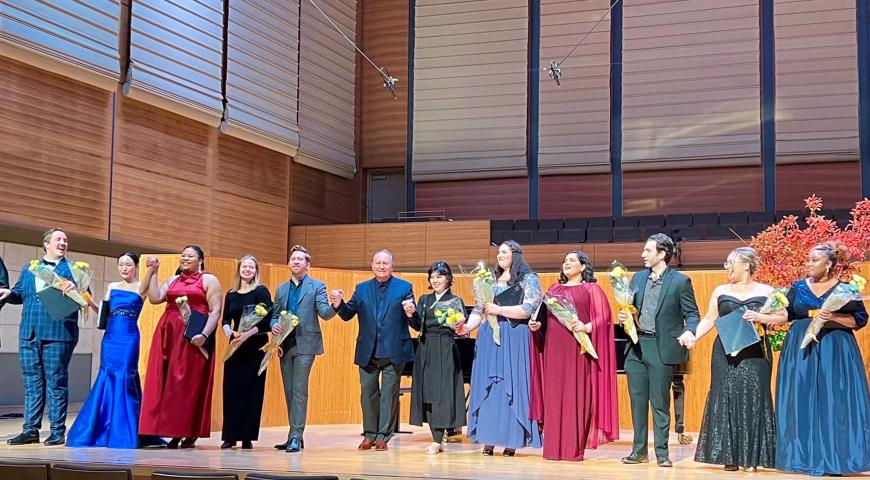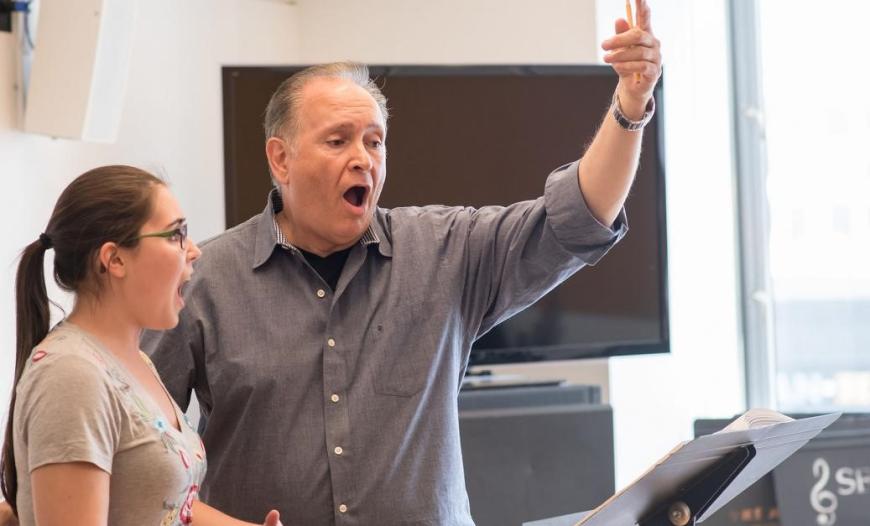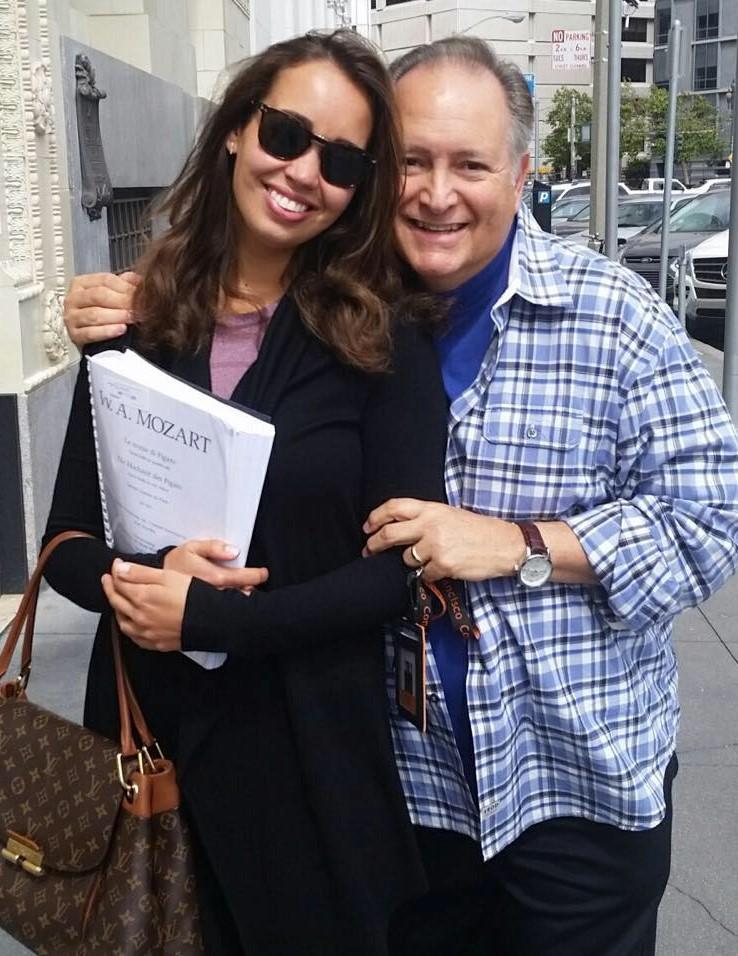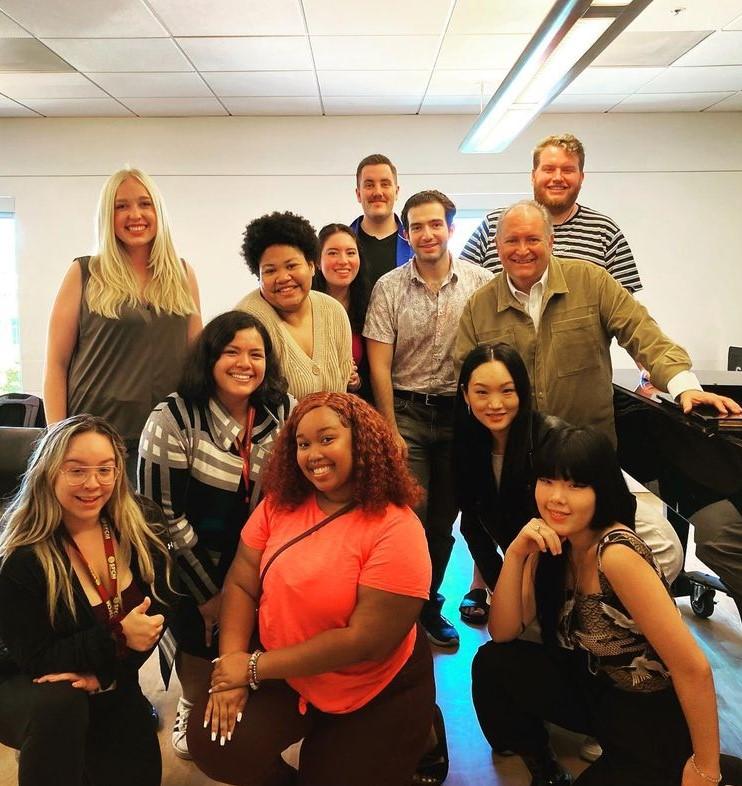
A few days ago, César Ulloa celebrated turning 70 ... by going to work. For the chair of the San Francisco Conservatory of Music’s Voice Department, a world-renowned vocal coach, that could mean only one thing: spending time with his student singers.
And so, he presided over a performance in SFCM’s concert hall, saying, “I love to have in my voice studio very different voice types heard in the recital.” This included young singers coming from Peru, Austria, Greece, New Zealand, Australia, Korea, and Japan.
Among former students who now combine singing with teaching, Daveda Karanas says, “I fondly call César the ‘voice whisperer.’ He is extremely attuned to the voice and all its possible capabilities. He is able to hear the smallest problem and immediately tries to figure out the best possible solution.
“His vocal exercises are specifically geared toward each individual voice and [its] corresponding repertoire. His exercises help strengthen, tone, shape, and build a better vocal instrument. César is someone I trust 100 percent with my instrument and career decisions.”

Frederica von Stade, known and beloved for her dedication to young talent and underprivileged youth, has called Ulloa “a guardian angel of singing.” Like his many students, Ulloa is no stranger to geographic diversity himself. Born in Cuba, he emigrated to Spain in 1960 with his family and two years later moved to the U.S.
He began his vocal studies in Dallas at Southern Methodist University with Metropolitan Opera tenor Thomas Hayward and later studied in New York City with Franco Corelli.
His career as a professional tenor in more than 50 roles brought him to the New York City Opera, Metropolitan Opera, Opéra de Monte-Carlo, Washington National Opera, Canadian Opera Company, and numerous symphony orchestras both in U.S., as well as an appearance with the Israel Philharmonic under the baton of Zubin Mehta.
Still, Ulloa thinks his more important accomplishment is his more than three decades of teaching — privately, at SFCM, as principal vocal instructor of the Merola Opera and Adler Fellowship Programs, and for many years at the Music Academy of the West, the Domingo-Colburn-Stein Young Artist Program, the Atelier Lyrique of the Opéra de Montréal, New Zealand Opera School, and SIVAM in Mexico City.
Among the hundreds of singers benefitting from Ulloa’s instruction and care who have risen to star status are Julie Adams, Angel Blue, Amina Edris, AJ Glueckert, Daveda Karanas, David Lomelí, Daniela Mack, Pene Pati, Eleazar Rodríguez, Mario Rojas, Alek Shrader, Nadine Sierra, Efraín Solís, Esther Tonea, and Robert Watson.
Before starring roles in famous opera houses, students have gone from Ulloa’s coaching to winning major vocal competitions, including the Metropolitan Opera National Council Auditions, Montserrat Caballé, Richard Tucker, Neue Stimmen, and George London — and some of them returned to Ulloa for years after.
Ulloa is especially proud of Lomelí: “He started studying with me in Mexico City, and [I] brought him to the U.S. to sing for Plácido Domingo. Besides having an extremely successful career as a singer, he became director of artistic administration at The Dallas Opera in 2018, casting director for Bavarian State Opera in 2021, and is now chief artistic officer at the Santa Fe Opera. An exceptional talent and a very smart business mind as well.”

Nadine Sierra — the Fort Lauderdale-born superstar soprano of Portuguese, Puerto Rican, and Italian heritage — started working with Ulloa as a teenager in Florida, where she made her professional debut with Palm Beach Opera. In 2015, she hailed “the incredible César Ulloa whom I've been working with for 14 years.”
The great mezzo-soprano Marilyn Horne said, when Ulloa received an award: “César has been such an important voice pedagogue for so many years, and doing it so successfully, he certainly deserves all praise and congratulations. My warmest congratulations and respect for all his years of devotion to the art of singing. He has been and continues to be a bright light in that most difficult arena, voice teaching. Thanks to César for making it possible for the world to have so many new singers who are succeeding so nicely.”
Mezzo Dolora Zajick called Ulloa “an invaluable and important part of the opera world, recognized by singers themselves — once their careers are established and they have had a chance to reflect on who made the difference for them — that it was César who gave them the skills a singer needs to have a career.”
Tenor AJ Glueckert writes from Germany: “César has an intense understanding of the passaggio and the extreme top. He also had 100 different techniques on how to accomplish a goal. My lessons bore no resemblance to the other students he worked with. Even today in speaking with other students of César, we each got a unique experience.”
Of his students featured in the studio recital at SFCM this month, Ulloa told SF Classical Voice:
“I have singers in my voice studio I have worked with since they were undergraduates and now are master’s students. For example, Vuyiswa Sigadi just turned 20, and she came to me two years ago.

“Others are finishing their master’s degrees and came to me when they were 18 and now are 22 and starting their first year as a master’s student, and some come from The Juilliard School, Manhattan School of Music, Indiana University [and] came to do their master’s at SFCM under my tutelage.”
Ulloa’s philosophy of teaching and learning singing is simple and self-effacing, crediting his students’ talent and determination:
Beverly Sills said [something] in a master class that I attended when I was a very young singer that stuck with me throughout my professional singing career and as a voice instructor and mentor to young artists.
I remember her saying that a diamond is just a rock at first when you find it, but it takes talented people to slowly shape and polish it and make it shine. So many exceptional voices (raw diamonds) don’t always end up with the person who can actually make them shine, and so they never reach their true potential and end up giving up.
I believe that to become a successful opera singer and have a major career, you must start first with having talent, excellent sense of pitch, innate musicality, excellent work ethic, and you must have a passion for the vocal arts and want it more than anything else in your life. I always tell my students that if they have something else in their lives that they love just as much as being a singer, then to do that.”



